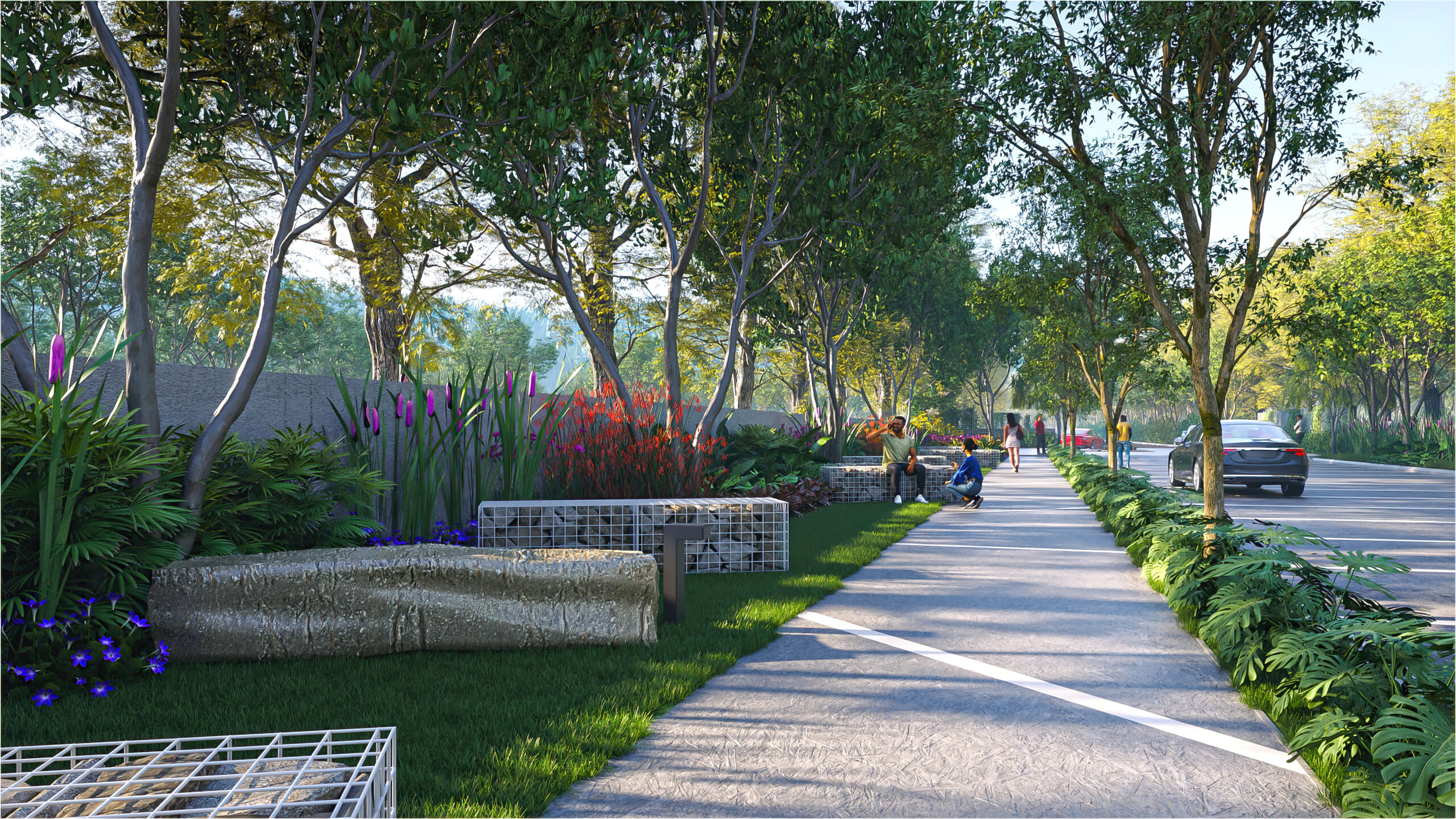Sustainable Gardening in Hyderabad: Eco-Friendly Tips for Your Farmhouse Garden
Sustainable gardening has become a crucial aspect of modern living, especially in urban landscapes like Hyderabad. With its unique climate and soil conditions, Hyderabad offers a fantastic opportunity for farmhouse owners to create eco-friendly gardens that not only beautify their spaces but also contribute to environmental conservation. In this article, we present comprehensive tips to help you design and maintain a sustainable farmhouse garden.
Why Sustainable Gardening Matters in Hyderabad
Hyderabad’s semi-arid climate, combined with increasing urbanization, makes sustainable gardening an essential practice. By conserving water, reducing chemical usage, and encouraging biodiversity, sustainable gardening helps in combating environmental challenges such as water scarcity, pollution, and loss of native flora and fauna. Implementing eco-friendly practices ensures that your garden thrives while preserving natural resources for future generations.
1. Understanding Hyderabad’s Climate and Soil
Optimize Your Garden for the Climate
Hyderabad experiences hot summers and moderate winters, with monsoon rains from June to September. These conditions make water management and heat-resistant plants essential. Consider the following:
- Choose native plants: Opt for drought-tolerant species such as neem, hibiscus, and bougainvillea, which are well-adapted to Hyderabad’s climate.
- Use shade structures: Protect delicate plants with pergolas or shade nets during peak summer months.
Enhance Soil Health
The predominant soil types in Hyderabad include red and black soils, which may need improvement for gardening. Sustainable practices for soil enrichment include:
- Composting: Add organic compost to enrich soil fertility and improve water retention.
- Mulching: Use organic mulch, such as dried leaves or straw, to regulate soil temperature and prevent erosion.
- Soil testing: Conduct a soil test to determine nutrient deficiencies and amend accordingly with natural fertilizers like cow dung or vermicompost.
2. Water Conservation Techniques
Rainwater Harvesting
Rainwater harvesting is a game-changer for sustainable gardening. Install storage tanks or recharge pits to collect rainwater during the monsoon. Use this stored water for irrigation during dry months.
Drip Irrigation
A drip irrigation system minimizes water wastage and ensures that water reaches the plant roots directly. It is an excellent option for Hyderabad’s semi-arid conditions.
Greywater Recycling
Recycle household greywater from sinks and washing machines for garden use. Ensure it is free from harmful chemicals by using biodegradable detergents and soaps.
3. Choosing Sustainable Gardening Materials
Organic Fertilizers and Pesticides
Replace chemical-based products with organic alternatives. Neem oil, garlic spray, and cow urine are effective for pest control, while compost and bone meal serve as excellent fertilizers.
Eco-Friendly Gardening Tools
Use tools made from sustainable materials like bamboo or recycled plastic. Invest in durable equipment to reduce waste.
Natural Mulches
Mulch not only conserves moisture but also enriches the soil as it decomposes. Options include coconut husks, wood chips, and grass clippings.
4. Native and Pollinator-Friendly Plants
Plant Native Species
Native plants require less maintenance and water, making them ideal for sustainable gardening in Hyderabad. Examples include tulsi, curry leaves, and jasmine.
Create a Pollinator Garden
Encourage biodiversity by planting flowers that attract bees, butterflies, and birds. Sunflowers, marigolds, and zinnias are excellent choices. Pollinators are vital for plant reproduction and ecosystem health.
5. Composting: Turning Waste into Gold
Composting is a cornerstone of sustainable gardening. It reduces household waste while providing nutrient-rich compost for your garden. Here’s how to get started:
- Collect kitchen scraps like fruit peels, vegetable waste, and eggshells.
- Layer them with dry leaves and soil in a compost bin.
- Turn the pile regularly to aerate it and accelerate decomposition.
- In a few weeks, you’ll have rich, dark compost ready for use.
6. Sustainable Landscaping Ideas
Xeriscaping
Design your garden to reduce water usage by incorporating xeriscaping principles:
- Use drought-tolerant plants.
- Replace lawns with gravel or native ground covers.
- Group plants with similar water needs together.
Vertical Gardens
Maximize small spaces by growing plants vertically. Use recycled materials like wooden pallets or old pipes to create vertical garden structures.
Edible Landscaping
Combine aesthetics with functionality by growing fruits, vegetables, and herbs. Mango trees, curry leaf plants, and drumsticks thrive in Hyderabad’s climate.
7. Renewable Energy in the Garden
Harness solar energy to power garden lights, water pumps, and other equipment. Solar-powered systems are cost-effective and eco-friendly, reducing your carbon footprint.
8. Pest and Weed Management
Companion Planting
Plant complementary species together to naturally deter pests. For example:
- Marigolds repel nematodes.
- Basil keeps aphids away from tomatoes.
Manual Weeding
Avoid chemical herbicides by manually removing weeds or using natural weed suppressants like mulch.
9. Maintaining a Year-Round Sustainable Garden
Seasonal Planting
Rotate crops and plant seasonal varieties to maintain soil health and optimize yields.
Regular Monitoring
Keep a close eye on your plants for signs of pests, diseases, or nutrient deficiencies. Address issues promptly using organic methods.







